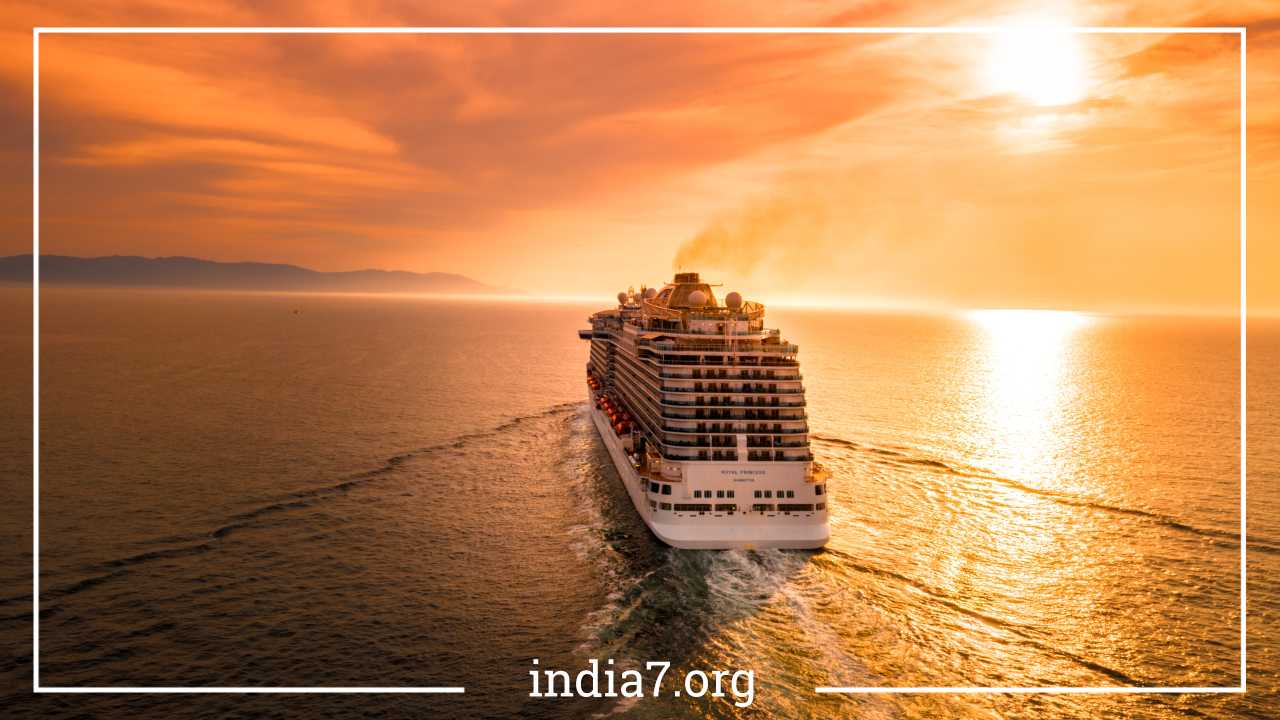Exploring Bulgaria: A Comprehensive Travel Guide to the Land of Roses

Bulgaria
Bulgaria, officially known as the Republic of Bulgaria or Bulgarian Republic, is a captivating country nestled in the heart of the Balkan Peninsula in Southern Europe. With its diverse landscapes, rich cultural heritage, and warm hospitality, Bulgaria is a destination that offers something for every traveler.
In this comprehensive guide, we will explore every aspect of traveling to Bulgaria, from its geography and climate to its cultural customs and top attractions. Whether you’re planning a visit to the capital city of Sofia or seeking an adventure in the Bulgarian mountains, this guide will provide you with valuable insights and travel tips to make the most of your Bulgarian experience.
About the Country
Bulgaria is a land of contrasts and beauty. It is bordered by the Black Sea to the east, Serbia and the Republic of Macedonia to the west, Romania to the north, and Greece and Turkey to the south. Additionally, Bulgaria shares maritime borders with Turkey, Romania, Ukraine, Russia, and Georgia. The capital and largest city of Bulgaria is Sofia. While Bulgaria may be relatively small in terms of land area, it more than compensates with its rich history, stunning landscapes, and welcoming people.
Geography
Bulgaria’s diverse geography is one of its most striking features. From the picturesque Black Sea coastline to the majestic Bulgarian mountains, the country offers a wide range of natural beauty. Here are some of the key geographic features of Bulgaria:
- Black Sea Coast: The eastern border of Bulgaria is lined with 354 kilometers (220 miles) of coastline along the Black Sea. This coastline is home to beautiful sandy beaches, seaside resorts, and charming coastal towns like Varna and Burgas.
- Balkan Mountains: Also known as the Stara Planina, the Balkan Mountains stretch across the country from west to east. These mountains offer excellent hiking opportunities and are home to numerous picturesque villages.
- Pirin Mountains: Located in the southwest, the Pirin Mountains are known for their rugged beauty and are a UNESCO World Heritage site. They are a popular destination for outdoor enthusiasts, particularly in winter for skiing and snowboarding.
- Rila Mountains: Home to Bulgaria’s highest peak, Mount Musala, the Rila Mountains are another popular destination for outdoor activities. The famous Rila Monastery is also located in this region.
- Danube River: Bulgaria’s northern border is marked by the majestic Danube River, which flows through picturesque landscapes and is dotted with historic towns.
- Thracian Plain: The central part of Bulgaria is occupied by the Thracian Plain, which is known for its fertile agricultural land and historic significance.
- Rhodope Mountains: Located in the southern part of the country, the Rhodope Mountains are characterized by their unique rock formations and rich folklore.
Climate
Bulgaria experiences a diverse range of climates due to its varying topography. The country can be broadly divided into three climate zones:
- Continental Climate: This climate zone covers much of northern Bulgaria, including Sofia. It is characterized by hot summers with average temperatures around 75°F (24°C) and cold winters with temperatures averaging about 32°F (0°C).
- Mediterranean Climate: Along the Black Sea coast, Bulgaria enjoys a Mediterranean climate with mild, wet winters and warm, dry summers.
- Mountain Climate: In the mountainous regions, such as the Pirin and Rila Mountains, the climate is alpine, with heavy snowfall in winter and cooler temperatures in summer.
The ideal time to visit Bulgaria largely depends on your preferences. If you’re interested in beach vacations, the summer months along the Black Sea coast are perfect. For skiing and winter sports, the mountainous regions come to life during the winter season. Spring and autumn offer pleasant weather for exploring the cultural and historical attractions of the country.
Population & Languages
Bulgaria has a population of approximately 7.4 million people, with Bulgarian as the official language. Turkish and Roma are also spoken by a considerable percentage of the population. While you can get by with English in tourist areas, learning a few basic Bulgarian phrases can enhance your travel experience and endear you to the locals.
Electricity
When traveling to Bulgaria, you’ll find that the electrical voltage is 230 V, and the frequency is 50 Hz. The types of plugs used are the round pin attachment plug and the “Schuko” plug and receptacle with side grounding contacts. It’s advisable to bring the appropriate plug adapter if your devices have a different plug type.
Local Customs
Understanding and respecting local customs is essential when visiting any foreign country, and Bulgaria is no exception. Here are some important customs to keep in mind:
- Greeting: When meeting someone, a customary handshake is appropriate. Bulgarians tend to be friendly and hospitable, so don’t be surprised if you receive warm greetings.
- Dress Code: While Bulgaria is relatively relaxed in terms of dress code, it’s a good idea to dress modestly when visiting religious sites or formal occasions. Casual wear is generally acceptable in most settings.
- Gift Giving: If invited to someone’s home, it’s a thoughtful gesture to bring a small gift or souvenir from your home country. This is a common practice in Bulgaria and demonstrates appreciation for the hospitality.
- Non-Verbal Communication: In Bulgaria, a nod of the head typically means ‘no,’ while a shake of the head means ‘yes.’ This can be confusing for visitors, so pay attention to the context of the conversation.
- Tipping: Tipping is customary in Bulgaria, and it’s expected in various service industries, including restaurants, bars, clubs, and taxis. A tip of 10% to 12% of the bill is generally considered appropriate.
- Photography: Always ask for permission before taking photos of people, especially in rural areas or when photographing individuals in traditional clothing.
Attractions
Bulgaria is a country that offers a wide range of attractions to explore, from historic cities to natural wonders. Here are some of the must-visit attractions in Bulgaria:
In Sofia:
- St. Sofia Church: This ancient church is a symbol of Sofia and an architectural masterpiece.
- St. George Rotunda: Dating back to the 4th century, this rotunda is one of the oldest preserved buildings in Sofia.
- Alexander Nevsky Cathedral: A stunning Orthodox cathedral known for its golden domes and impressive interior.
- National Ethnographic Museum: Explore Bulgaria’s rich cultural heritage through exhibits showcasing traditional costumes, crafts, and artifacts.
In the Mountains:
- Village of Momchilovtsi: A picturesque village nestled in the Rhodope Mountains, known for its natural beauty and hiking trails.
- Pirin National Park: This UNESCO World Heritage site is a haven for nature lovers and hikers, with its pristine landscapes and diverse flora and fauna.
- Rila Monastery: An iconic Bulgarian Orthodox monastery, Rila Monastery is renowned for its stunning architecture and religious significance.
These are just a few of the many attractions you can explore in Bulgaria. Whether you’re interested in history, culture, outdoor adventures, or simply relaxing on the beach, Bulgaria has something to offer every traveler.
Travel
Bulgaria offers various transportation options to make your travel within the country convenient and accessible.
By Air: The national airline of Bulgaria is Bulgaria Air. In addition to the national carrier, several international airlines operate flights to and from Bulgaria. The primary international gateway is Sofia International Airport EAD (SOF), located approximately six miles east of Sofia. Another significant international airport is Varna International Airport (VAR), situated in the western outskirts of Varna, about five miles from the city. These airports connect Bulgaria to numerous destinations in Europe and beyond.
By Sea: Bulgaria boasts essential international ports along the Black Sea coast, with Burgas and Varna serving as major maritime hubs. If you’re arriving by cruise ship or plan to take a ferry, these ports offer convenient access.
By River: If you’re interested in exploring Bulgaria’s neighboring countries, ferries provide transportation across the Danube River. For example, you can cross into Romania from Vidin to Calafat via ferry.
By Rail: Bulgaria has an extensive rail network that connects major cities and regions. Sofia, the capital, serves as a central hub with frequent train services to various European cities, including Budapest, Belgrade, Bucharest, Thessaloniki, Paris, Vienna, Munich, and Berlin. Train travel can be an economical and scenic way to explore the country and its neighboring regions.
Duty Free Items
When traveling to Bulgaria, it’s essential to be aware of duty-free allowances and restrictions. Here’s what you can typically bring into the country without incurring customs duties:
- Tobacco: You are allowed to bring 200 cigarettes, 50 cigars, or 250g of tobacco.
- Alcohol: The duty-free allowance for alcoholic beverages includes 1 liter of spirits and 2 liters of wine. You can also bring 50g of perfume and 100g of eau de toilette.
- Gifts and Personal Use Items: Small gifts and personal items for your own use are generally exempt from customs duties.
Prohibited Items
To ensure a smooth entry into Bulgaria, it’s crucial to be aware of prohibited items that are not allowed into the country. The following items are generally prohibited:
- Un-canned Goods: Avoid bringing un-canned goods, especially perishable items, into Bulgaria.
- Meat or Dairy Products: Imported meat and dairy products may be subject to strict regulations, so it’s best to check with customs authorities before traveling with such items.
- Narcotics: Possession of narcotics is illegal and subject to severe penalties.
- Pornography: The importation of explicit materials is prohibited.
- Firearms and Ammunition: Firearms and ammunition require special permits and documentation for entry into Bulgaria.
- Endangered Species: The trade in products made from endangered species is illegal and strictly regulated under international law.
- Fireworks: Bringing fireworks into Bulgaria without proper authorization is prohibited.
- Alcoholic Beverages with High Alcohol Content: Alcoholic beverages containing more than sixty percent alcohol are typically restricted.
Health and Safety
Travelers to Bulgaria should also be aware of health and safety considerations:
- Travel Insurance: It’s advisable to have comprehensive travel insurance that covers medical expenses, including emergency medical evacuation.
- Healthcare: Bulgaria has a decent healthcare system, particularly in major cities. However, it’s a good idea to check if your travel insurance covers medical treatment in Bulgaria.
- Tap Water: While tap water is generally safe to drink in Bulgaria, many people prefer to drink bottled water, which is widely available.
- Currency: The official currency of Bulgaria is the Bulgarian Lev (BGN). Credit cards are widely accepted in urban areas, but it’s a good idea to carry some cash, especially when visiting rural areas.
- Emergency Numbers: The emergency number for police, fire, and medical assistance in Bulgaria is 112.
- Safety: Bulgaria is considered a safe destination for travelers. However, as in any country, it’s essential to take precautions against petty theft and be mindful of your belongings, especially in crowded tourist areas.
Cuisine
Exploring the culinary delights of Bulgaria is an integral part of any visit. Bulgarian cuisine is a blend of flavors influenced by Mediterranean, Turkish, Greek, and Slavic culinary traditions. Here are some must-try dishes and culinary experiences:
- Bulgarian Yogurt: Bulgaria is famous for its yogurt, and trying authentic Bulgarian yogurt is a must. You’ll find it served with honey, fruit, or as a component of various dishes.
- Banitsa: This savory pastry made of thin layers of dough, eggs, and cheese is a popular breakfast or snack option.
- Kavarma: A delicious stew typically made with pork or chicken, vegetables, and spices.
- Shopska Salad: A refreshing salad made with tomatoes, cucumbers, peppers, onions, and feta cheese, drizzled with olive oil.
- Kebapche and Kyufte: These grilled minced meat dishes, often served with a side of flatbread and salad, are beloved by Bulgarians.
- Rakia: A strong fruit brandy, Rakia is Bulgaria’s national alcoholic beverage. It’s often enjoyed as an aperitif or during celebrations.
- Bulgarian Wine: Bulgaria has a long history of winemaking, and its wine regions produce a variety of excellent wines. Don’t miss the opportunity to taste local Bulgarian wines.
- Baklava: This sweet pastry made of layers of filo dough, nuts, and honey is a delightful dessert.
Sampling these dishes and beverages will give you a taste of Bulgaria’s culinary heritage and the opportunity to savor the country’s unique flavors.
Final Thoughts
Bulgaria is a hidden gem in Europe, offering a diverse range of experiences for travelers. From the stunning beaches of the Black Sea coast to the rugged beauty of its mountains, Bulgaria is a country that will captivate your senses and leave you with lasting memories. By understanding its geography, climate, culture, and customs, you can fully immerse yourself in the Bulgarian experience.
Whether you’re exploring historic sites in Sofia, embarking on outdoor adventures in the mountains, or simply indulging in delicious Bulgarian cuisine, this country has something to offer every traveler. With the right preparation and knowledge, your journey to Bulgaria will be a truly enriching and unforgettable experience.
So, pack your bags, brush up on a few Bulgarian phrases, and get ready to explore the “Land of Roses” – Bulgaria awaits your discovery.



